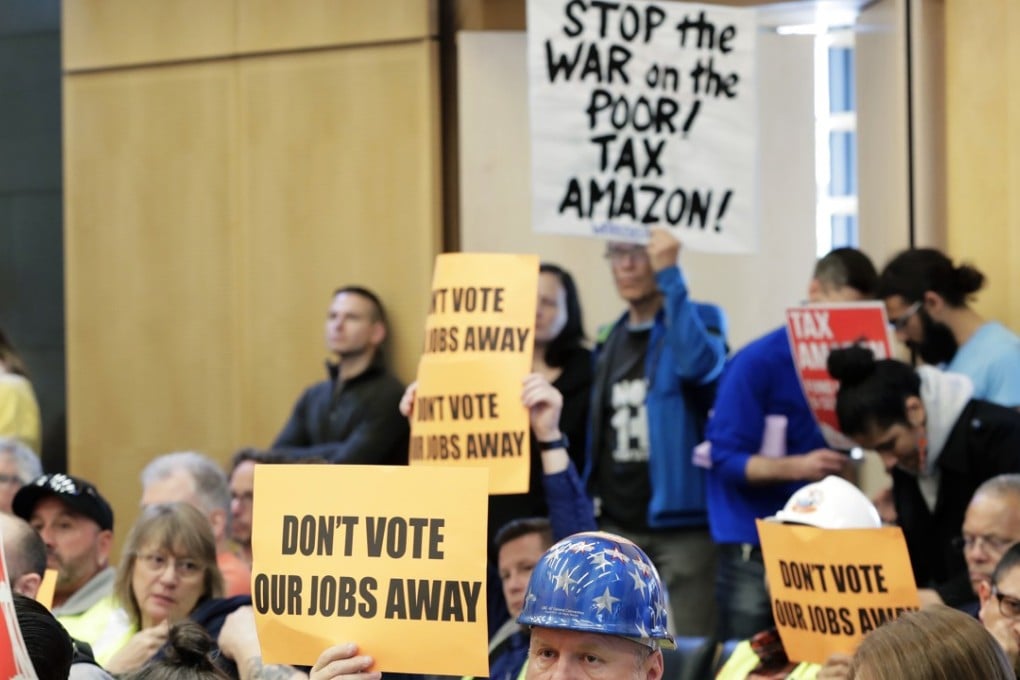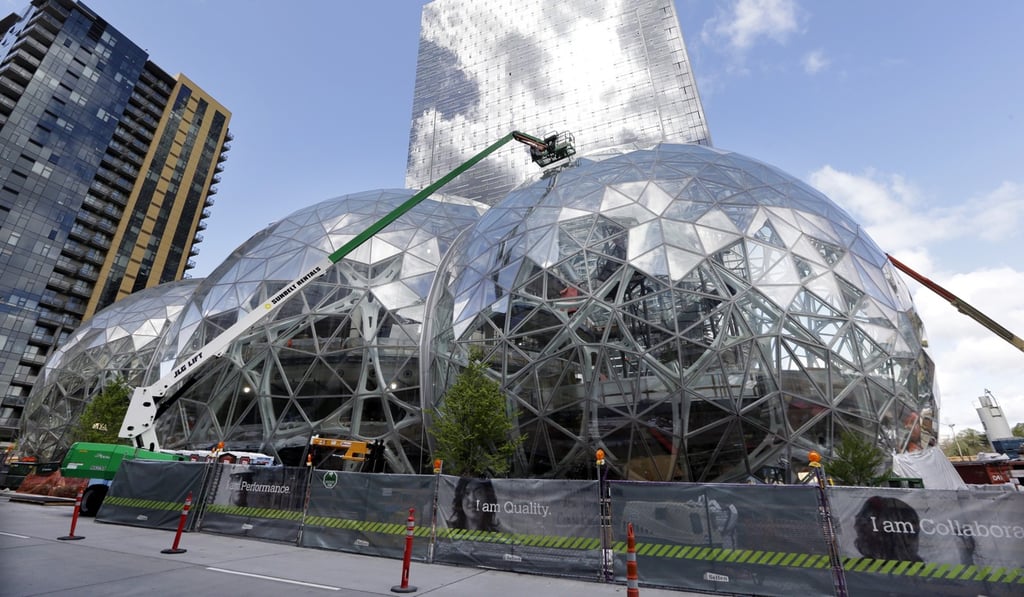To pacify Amazon, Seattle takes less from a tax on big business that will help the poor
The ‘head tax’ charging the city’s top businesses to raise funds to combat homelessness has been halved to US$275 per employee after Amazon halted construction of office towers that would bring more than 7,000 new employees to the city

Seattle’s swelling homeless population won a battle that pitted government officials against the Emerald City’s largest employer, Amazon. In May, the Seattle City Council unanimously backed a proposal to tax the city’s top businesses US$275 per employee to raise more than $45 million toward homeless programmes.
The move came amid cheers of protesters, who carried signs saying “Tax the Rich” and “Tax Amazon: Stand up to Bezos Bullying”. But neither side came away unscathed, and simmering resentments are causing people to question the relationship between Seattle and the company that employs about one of every 10 city residents.
City officials originally sought a US$500 tax to raise US$75 million a year to fund homeless programmes, but that was nearly cut in half as a way to appease Amazon, which halted construction of two 17-storey office buildings that would bring more than 7,000 new employees to the city until after the vote.
Despite the compromise, the tax fight shows the souring relationship between Amazon and the city, especially by the company’s plan to build a second headquarters with 50,000 jobs outside Seattle and Washington state.

“We are disappointed by today’s City Council decision,” Amazon vice-president Drew Herdener said in a statement after the vote. “While we have resumed construction planning … we remain very apprehensive about the future created by the council’s hostile approach and rhetoric toward larger businesses, which forces us to question our growth here.”